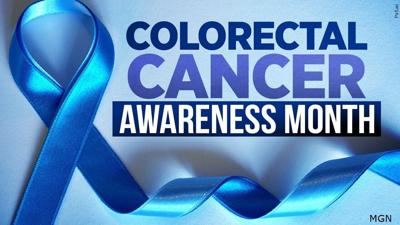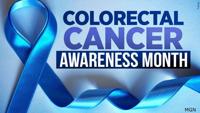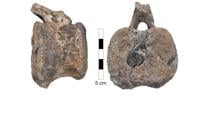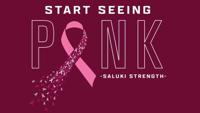SPRINGFIELD, Ill. —�It's Colorectal Cancer Awareness Month in Illinois, and the Illinois Department of Public Health (IDPH) encourages residents to get informed about the disease and the importance of regular screenings.
“Colorectal cancer screening saves lives,� said IDPH Director Dr. Sameer Vohra. “Colorectal cancer is the second leading cancer death in the United States, behind only lung cancer. We know, for many, that it can be scary or inconvenient to get screened, but most types of colorectal cancers are preventable or treatable when detected early. Several screening tests can be used, including some you can do at home. If you are 45 and over, please talk to your healthcare provider on the right test for you. Let’s come together this Colorectal Cancer Awareness Month to raise awareness, share stories, and save lives.�
Early detection is key in the fight against colorectal cancer. Studies show a significant difference in survival rates depending on the stage of diagnosis. When caught early, the five-year survival rate is around 90%. This emphasizes the importance of regular screenings, which can help identify early signs and increase the chances of successful treatment.
Unfortunately, if left undetected, colorectal cancer can spread and significantly worsen the prognosis. In such cases, the five-year survival rate drops to around 10%.
Looking specifically at Illinois in 2023, over 6,200 new cases were diagnosed, and tragically, more than 2,100 individuals passed away from the disease. It's crucial to raise awareness, particularly within communities with higher incidence rates, such as Black, non-Hispanic males and females.
This information highlights the critical role of early detection in combating colorectal cancer. Regular screenings are essential for improving the chances of successful treatment and overcoming this illness.
Various tests are available to detect signs of colorectal cancer, including:
- COLONOSCOPY - Detect cancer and also suspicious-looking polyps before they turn into cancer.
- SIGMOIDOSCOPY - Less invasive and looks at the lower part of the colon, as opposed to a colonoscopy that looks at the whole large intestine.
- FECAL OCCULT BLOOD TEST and FECAL IMMUNOCHEMICAL TEST - Help to show if there's blood found in the stool. Â
- STOOL DNA TEST - Also known by the brand name "Cologuard," it detects the presence of blood and abnormal DNA that can be a sign of cancer.Â
Selecting the optimal colorectal cancer screening approach involves considering various factors.
These factors include a patient's age, general health, family history, and individual risk profile.
Consulting a healthcare provider is crucial to determine the most appropriate screening method.
While regular screenings are generally recommended for individuals aged 45 to 75, those under 45 with potential high risk are also encouraged to discuss testing options with their healthcare provider.
Pritzker declared March as Colorectal Cancer Awareness Month in Illinois:
To learn more about colorectal cancer and preventative measures, .














